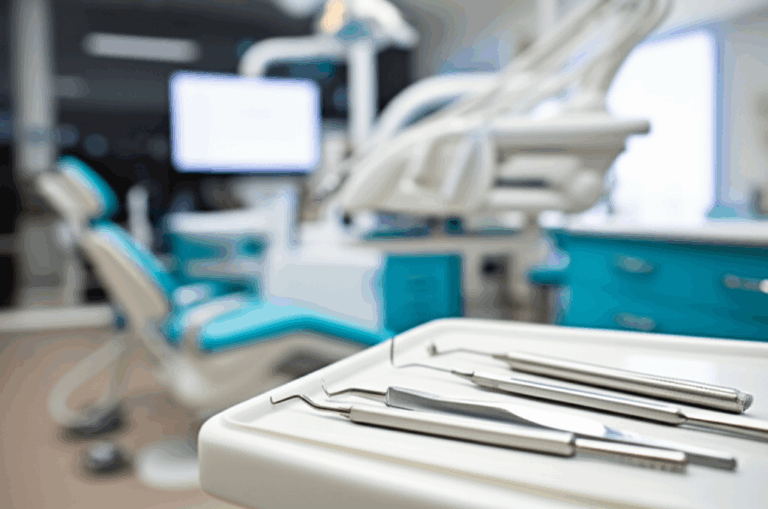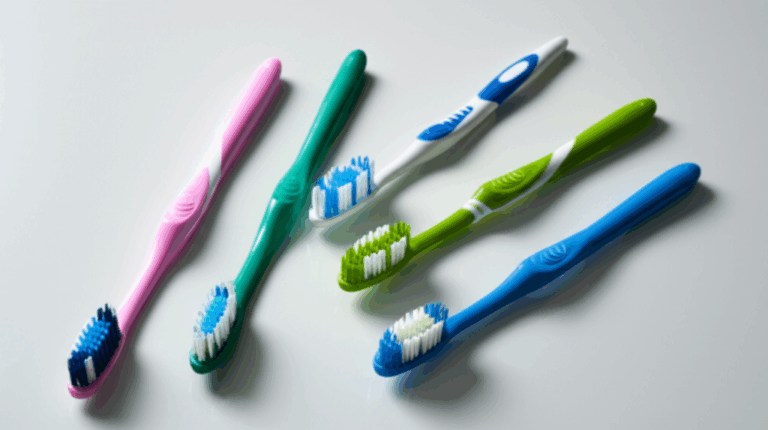Why Do Dentists Scrape Your Teeth? The Essential Guide to Professional Dental Cleaning
That scraping sound you hear at the dentist—kind of like nails on a chalkboard—makes almost everyone cringe a little. Maybe you’ve wondered, “Why do dentists scrape my teeth? Do they really need to, or is it just something they always do?” These are fair questions, and you’re not the only one asking. After all, anything that involves sharp tools close to your teeth and gums should have a real reason.
The truth is, dental scraping—also called scaling—isn’t just a regular part of your checkup. It’s really important for keeping your mouth healthy and your smile looking good, and it can even help with your general health.
Before we get into the details, let’s see what’s inside this guide.
In This Article
- What Is Dental Scraping? (And Why Should You Care?)
- Plaque and Tartar: The Real Enemies of Your Mouth
- Why Dentists Scrape Teeth: The Core Reasons You Need to Know
- What Happens During Dental Scraping? A Step-by-Step Walkthrough
- Is Teeth Scraping Really Necessary?
- Beyond the Scrape: What Else Happens During a Professional Cleaning?
- Frequently Asked Questions (And Honest Answers)
- Key Takeaways and Next Steps for a Healthier Smile
What Is Dental Scraping? (And Why Should You Care?)
Let’s make it clear from the start. When dentists talk about “scraping,” they mean a process called scaling. This is a special cleaning dentists do to get rid of tough stuff on your teeth like plaque and tartar (more about these soon).
Think of dental scaling as a deep clean for your mouth. Even if you brush and floss really well, some stuff gets left behind, especially in hard-to-reach areas or close to your gums. Over time, this stuff gets hard and forms a rough, stubborn layer. Your toothbrush can’t clean it away. That’s where scaling comes in.
But why does this matter? Well, if you don’t remove this buildup, it’s not just about weird-feeling teeth or bad breath. You could be setting yourself up for gum disease, cavities, and even missing teeth. So, when your dentist uses a scaler, remember—they’re not trying to make you uncomfortable. They’re trying to keep your mouth healthy and your smile bright.
Plaque and Tartar: The Real Enemies of Your Mouth
Let’s talk about those two troublemakers: plaque and tartar.
What Is Plaque?
Plaque is a soft, clear, sticky layer that forms on your teeth every day. It’s made of bacteria, food bits, and spit. If you don’t clean it away, these bacteria eat sugar in your food and make acids. These acids slowly eat away your teeth, causing cavities and making your gums sore.
Picture plaque like the wet morning dew—except it’s really full of germs looking for a place to hang out on your teeth.
How Does Plaque Turn into Tartar?
Here’s why things get tricky. If you don’t clean away plaque by brushing and flossing, it doesn’t just sit there. After just one to three days, it can suck in minerals from your spit and turn into a hard crust called tartar (also called calculus).
Tartar is like an unwanted guest that just won’t leave. It sticks really well, above and below your gumline, in places your toothbrush and floss can’t reach. Once tartar forms, you can’t remove it at home. You need a dentist’s tools to get rid of it.
Why Are Plaque and Tartar Dangerous?
It’s not just about looks.
- Plaque always comes back, and the germs inside it make your gums sore.
- Tartar gives germs a perfect hiding place, making your gums even more sore and causing even more problems.
If you don’t remove them, you could get red, swollen gums (gingivitis), a full infection under your gums (periodontitis), really bad breath, cavities, and after a long time—even lose some teeth.
Why Dentists Scrape Teeth: The Core Reasons You Need to Know
Wondering if all this scraping is really needed? Here’s exactly why your dentist does it—and why your teeth, gums, and even the rest of your body should be glad.
1. Plaque and Tartar Removal
This is the big reason. Scaling is the ONLY way to get tartar off your teeth, especially in the hard spots. While you can get rid of fresh plaque at home, once it gets hard, it’s locked on. Only your dentist or hygienist’s tools can break it up.
Dentists use both hand scalers and ultrasonic scalers—machines that vibrate super fast and squirt water to rinse away the mess. Together, they clean all the visible and hidden areas.
2. Preventing and Treating Gum Disease
You may have heard about gingivitis and periodontitis before.
- Gingivitis is the first stage—your gums look red, get swollen, and may bleed easily because of germs in the tartar on your gums.
- Periodontitis is a later stage. Your gums pull away, spaces form, bone gets damaged, and your teeth get loose.
Scaling stops this from getting worse. By getting rid of tartar, your gums can start to recover and stay healthy. Not having professional cleanings is like not pulling weeds out of a garden—the longer you wait, the worse it gets.
3. Protecting Teeth from Cavities
Bacteria love to eat the leftover food stuck between your teeth or below your gums. They make acids that wear down your teeth, making cavities more likely. Scaling removes these bacteria, saving your teeth.
4. Removing Surface Stains
Over time, drinks like coffee, tea, wine, and even smoking can stain your teeth, especially on tartar. Scaling helps remove those stains, leaving your teeth looking clean and shiny.
5. Improving Overall Oral and General Health
Bad breath isn’t just embarrassing—it often means bacteria are growing in your mouth where you can’t reach. Scaling gets rid of those germs, making your breath fresher and your gums less sore.
Here’s something else: Studies show that healthy gums are important for your whole body. Mouth infections can raise your risk for heart problems, make diabetes harder to control, and even cause breathing troubles. So your time at the dentist isn’t just for smiles—it helps your whole body.
What Happens During Dental Scraping? A Step-by-Step Walkthrough
Not knowing what’s going to happen is usually the worst. So let’s walk through a typical dental cleaning visit.
1. The Check-In
Your dentist or hygienist starts by looking around your mouth with a small mirror, checking for swollen gums, dark spots, or other issues.
2. Meet the Tools
- Ultrasonic Scaler: This tool might look scary, but think of it like a mini power washer for your teeth. It shakes really fast and knocks tartar off, while shooting out water to wash everything away.
- Hand Scaler (Curette): For smaller spots, your hygienist uses a pointy metal tool. It’s for the tiny nooks and crannies the other tool can’t reach.
3. What Will It Feel Like?
- Pressure, Not Pain: Most people just feel some pressure and hear the scraping sound. If you have a lot of tartar, you might hear more scraping—that’s the tool working, not your teeth being harmed.
- Sometimes Sensitive: If your gums are sore, you might feel a little discomfort. Sometimes dentists use a numbing gel for deeper cleaning, but for a regular cleaning, you don’t usually need it.
4. How Long Does It Take?
The time it takes depends on how much buildup you have. If you brush, floss, and visit the dentist every six months, cleaning is usually quick. If it’s been longer or you have gum disease, it might take more time to get every tooth clean.
5. What About Aftercare?
Your teeth might feel really smooth or maybe a little sensitive for a day or two, mostly near your gums. That’s normal and usually gets better quickly.
Is Teeth Scraping Really Necessary?
Some people ask: “If I brush and floss every day, do I really need a dentist to scrape my teeth?” Here’s the honest answer.
The Limits of Brushing and Flossing
- Plaque Comes Back Fast: Even people who brush and floss well can’t reach every tight spot. Plaque builds up in hard places, and your home tools can only do so much.
- Tartar Is Strong: Once plaque turns hard, it’s like barnacles on a boat. No amount of scrubbing at home will take it off—you need a pro’s help.
How Often Should You Get Your Teeth Cleaned?
- Usual Advice: Most adults need a pro cleaning every six months.
- More Risk, More Visits: If you have gum problems, diabetes, braces, smoke, or get tartar easily, your dentist might want to see you more often.
What Happens If You Skip Professional Cleanings?
- Cavities and Gum Problems: You’re more likely to get gum infections, tooth decay, and maybe even lose teeth.
- Bigger Problems, More Cost: Cleanings are much cheaper—and hurt way less—than fillings, gum surgery, or getting new teeth.
“But My Teeth Look Fine…”
Just because they look fine doesn’t mean there’s no trouble. Tartar can hide under your gums. Gum disease often starts quietly but does damage behind the scenes.
If you want to keep your teeth for life, getting your teeth cleaned by a pro is very important.
Beyond the Scrape: What Else Happens During a Professional Cleaning?
Scraping isn’t the only thing done at your appointment. Here’s what else happens:
Polishing
After the tartar is gone, your hygienist uses a spinning brush and special paste to smooth out your teeth. It’s like waxing your car after washing—it makes things shiny and helps keep new buildup from sticking.
Fluoride Treatment
Most offices offer a fluoride gel to help harden your teeth and cut down on how sensitive they are. It gives your teeth a little extra protection.
Oral Hygiene Tips
Before you go, you’ll get some advice for keeping your mouth healthy at home:
- How to brush and floss better
- What toothpaste, brushes, or mouthwashes might help you
- Tips if you get a lot of tartar or stains
Frequently Asked Questions (And Honest Answers)
Why do my teeth feel weird after scraping?
Most people notice their teeth feel really smooth or sometimes a little sensitive after cleaning. That’s normal—it means the rough plaque is gone!
Does scraping damage my teeth or enamel?
No. When a professional does it, scaling only removes the bad stuff. The tools are made to be careful, not rough.
Can’t I just get rid of tartar with “scaling tools” at home?
Don’t try this yourself. Home tools are not the same, and you can hurt your gums, damage your teeth, or even push germs deeper. This is a job for experts.
Is it normal for my gums to bleed during cleaning?
A little bleeding can happen, especially if your gums are sore. As your gums get healthier, they’ll bleed less.
How can I keep plaque and tartar from coming back?
Brush, floss, and rinse with mouthwash your dentist recommends. Try not to eat or drink too much sugar. But remember—even with perfect care, some spots get missed. That’s why pro cleanings matter.
Key Takeaways and Next Steps for a Healthier Smile
Here’s the short version:
- Dental scaling (scraping) is the only way to remove hard tartar and plaque. You need special tools for this.
- If you don’t treat plaque and tartar, you can get gum disease, tooth decay, and even lose teeth. It’s much easier and cheaper to stop the problem early.
- Scaling isn’t just for looks. It gets rid of bacteria, helps your gums, makes your breath better, and can help your whole body stay healthy.
- You need pro cleanings at least every six months. Some people need them more.
- Good tooth care at home is important, but you still need the dentist’s help.
What to do next: Check your calendar. Has it been longer than six months since your last cleaning? Call your dentist or hygienist. Your teeth will thank you for years!
And if you want to learn more about new dental technology, or you’re interested in things like the work of a china dental lab, how a digital dental lab works, or what a crown and bridge lab can do, take a look at those topics.
Wrapping Up: Your Smile, Your Health, Your Choice
Scraping isn’t about making you uncomfortable for no reason. It’s about stopping problems before they start, keeping your gums and teeth healthy, and helping you smile with confidence. It may not be your favorite part of a dental visit, but it’s really important.
Oral health isn’t just nice to have—it’s basic to your health. And you get to choose. With regular professional cleanings and good home habits, you can keep plaque and tartar away, avoid gum disease, and enjoy a healthy mouth for life.
Remember: a few moments of “scraping” now mean lots of happy, comfortable moments in the future.
Sources:
- American Dental Association (ADA)
- Centers for Disease Control and Prevention (CDC)
- World Health Organization (WHO)
- Journal of Periodontology
- Cochrane Reviews on Periodontal Treatment
Medically reviewed by a licensed dental professional.







